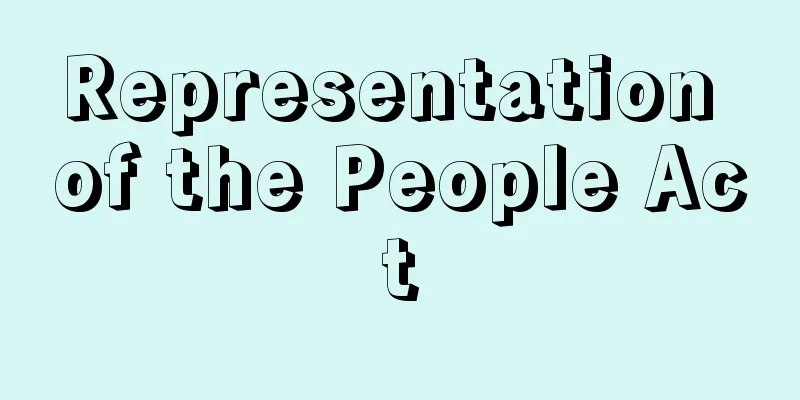Representation of the People Act

|
During World War I, both organizations refrained from campaigning for suffrage and actively cooperated with the war effort. As a result, the Representation of the People Act of 1918 granted the right to vote to women over the age of 30, and in 1928, men and women over the age of 21 were granted the right to vote. *Some of the terminology referenced in the "Representation of the People Act" is listed below. Source | Heibonsha World Encyclopedia 2nd Edition | Information |
|
… 第1次大戦中は,どちらの組織も参政権運動をひかえ,戦争に積極的に協力した。その結果,1918年には〈人民代表法Representation of the People Act〉によって30歳以上の女性に選挙権が認められ,28年には21歳以上の男女に選挙権が認められるようになった。 ※「Representation of the People Act」について言及している用語解説の一部を掲載しています。 出典|株式会社平凡社世界大百科事典 第2版について | 情報 |
Recommend
Rothschild, KM
…He was of Jewish descent and also contributed to...
Congested nipples
…Vision [Minami Hisabin] [Mizuno Noboru] [Optic n...
Revolutionary Tribunal (English: Tribunal révolutionnaire) (French)
The tribunal was established on March 10, 1793, t...
Emperor Guangwu
The first emperor of China (reigned 25-57) who ov...
North America - Kitaamerika (English spelling) North America
A name used to divide the Americas. When the cont...
Duty and Anxiety - Gimu to Fun
...His real name was Eugène Grandel. He spent his...
Kawakami River
(Saga Prefecture) A tourist attraction designated ...
Antera
...They are the attendants of Yakushi Nyorai and ...
Buried gutter - Uzumihi
〘Noun〙 (also "Uzumibi") A gutter that is...
Takine [town] - Takine
A former town in Tamura County in central-eastern ...
Trans-Australian railway
...The Russian government hurried up the construc...
Agricultural trade - Agricultural trade
This refers to the international buying and selli...
Ishikawa Koto
Years of birth: Years of birth and death unknown. ...
Cape [town] - Misaki
A former town in Isumi County in the southeastern ...
Otakata Haccho ruins - Otakata Haccho ruins
⇒Shiwa Castle Ruins Source: Kodansha National Hist...







![Izumiotsu [city] - Izumiotsu](/upload/images/67caea0f76e13.webp)

